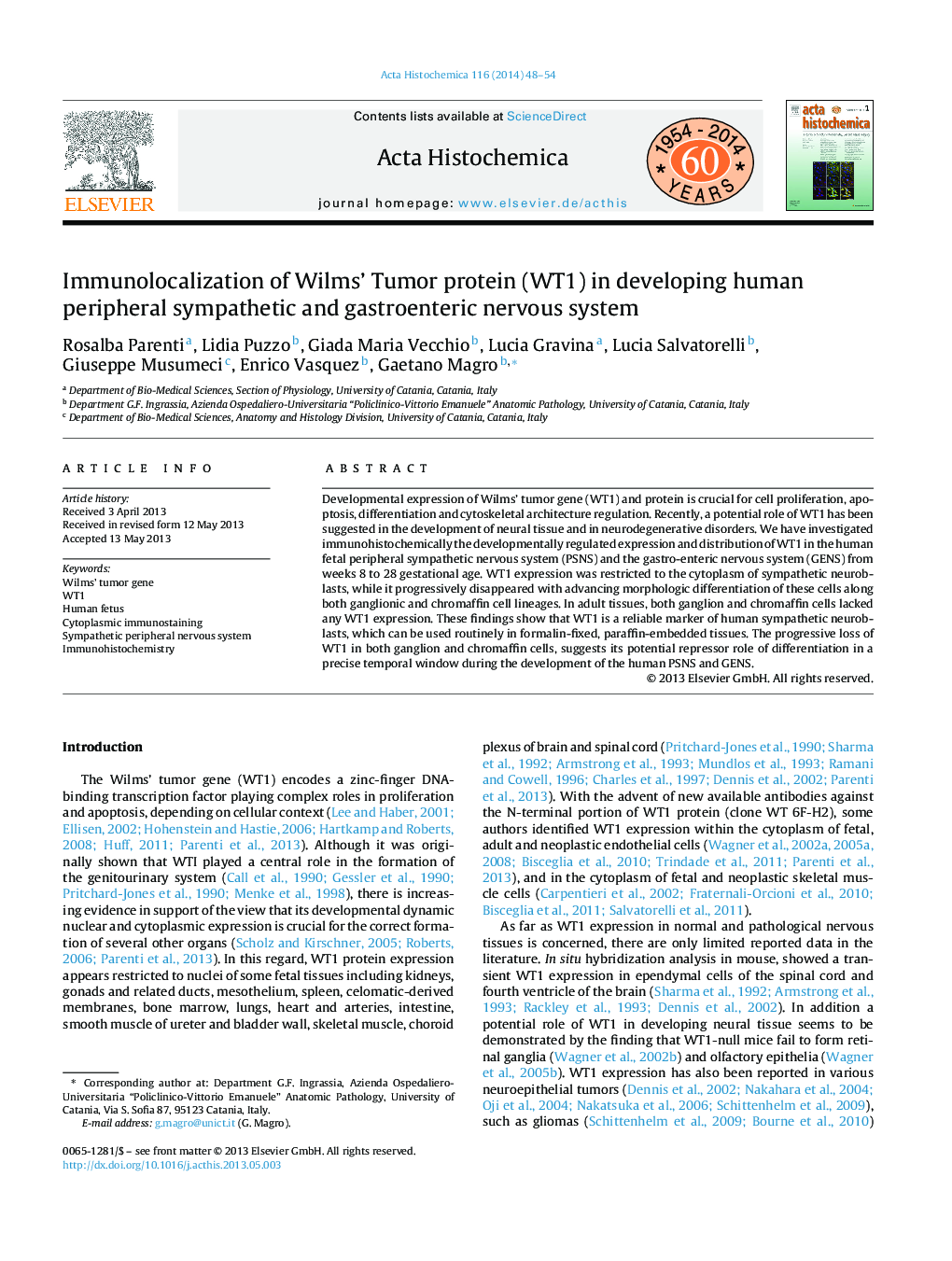| Article ID | Journal | Published Year | Pages | File Type |
|---|---|---|---|---|
| 10747184 | Acta Histochemica | 2014 | 7 Pages |
Abstract
Developmental expression of Wilms' tumor gene (WT1) and protein is crucial for cell proliferation, apoptosis, differentiation and cytoskeletal architecture regulation. Recently, a potential role of WT1 has been suggested in the development of neural tissue and in neurodegenerative disorders. We have investigated immunohistochemically the developmentally regulated expression and distribution of WT1 in the human fetal peripheral sympathetic nervous system (PSNS) and the gastro-enteric nervous system (GENS) from weeks 8 to 28 gestational age. WT1 expression was restricted to the cytoplasm of sympathetic neuroblasts, while it progressively disappeared with advancing morphologic differentiation of these cells along both ganglionic and chromaffin cell lineages. In adult tissues, both ganglion and chromaffin cells lacked any WT1 expression. These findings show that WT1 is a reliable marker of human sympathetic neuroblasts, which can be used routinely in formalin-fixed, paraffin-embedded tissues. The progressive loss of WT1 in both ganglion and chromaffin cells, suggests its potential repressor role of differentiation in a precise temporal window during the development of the human PSNS and GENS.
Related Topics
Life Sciences
Biochemistry, Genetics and Molecular Biology
Biochemistry
Authors
Rosalba Parenti, Lidia Puzzo, Giada Maria Vecchio, Lucia Gravina, Lucia Salvatorelli, Giuseppe Musumeci, Enrico Vasquez, Gaetano Magro,
